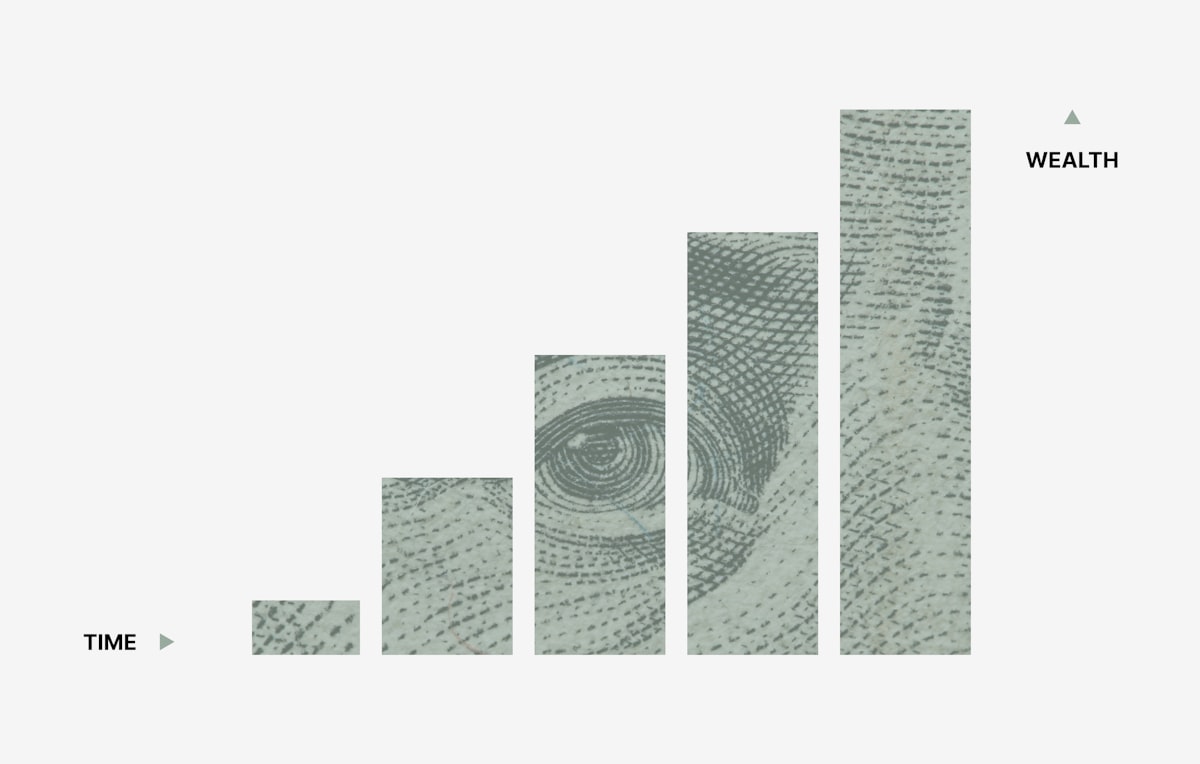Social media is changing in a fundamental way. This sentiment of mine isn't solely sparked by the metamorphosis that Twitter X is currently undergoing - but it's something that I've become more and more aware of in recent years. It's an uneasy feeling really, when a big part of your current livelihood depends on platforms that are seemingly more and more fragile every passing day.
Social media platforms have lost a quintessential characteristic that defined them in the past - social media isn't social anymore. Previously labeled as social networks, the goal of connecting people has largely been abandoned, especially by the platforms that have established rather large user bases over the past two decades. Today platforms that are entirely dedicated to this purpose are an exception. Discord for instance. Networking, virtually socializing as well as making new connections; all of those initial promises have long been forgotten.
There has been a massive paradigm shift.
Social media platforms cease to be communication-centric devices, that provide individuals with the tools to connect and communicate, but rather, vessels for constant and uninterrupted content distribution. You still have to connect with other users on these platforms for you to consume content, but becoming connected has largely become a secondary aspect, and not the primary purpose.
Ian Bogost's thought provoking article The Age of Social Media Is Ending on the Atlantic, illustrates it as follows:
[...] connection as a primary purpose has declined. Think of the change like this: In the social-networking era, the connections were essential, driving both content creation and consumption. But the social-media era seeks the thinnest, most soluble connections possible, just enough to allow the content to flow.
It's hard to pin-point, exactly what platforms have transformed into over the years, and equivalently, what they're trying to become in the future - because they do so many different things. It's unclear what the primary purpose of many of them has become at this point. Look at Twitter for example, under it's new management it's unambiguously trying to become an everything app. A super app that lets you do... well, everything. Post your opinions, trade stocks, and at the same time order yourself some food, why not?
To be fair, Twitter is probably not the best example these days. However, one reason that allows platforms to get away with such drastic transformations is by virtue of having amassed such ridiculously large user bases, that are in many ways dependent on those platforms.
When your livelihood depends on such a platform, you're most likely not going to pull the plug just because of some annoying new feature. You'll adapt somehow and weather the tides. One example thereof is Instagram, ceasing to be an image-centric platform, when the short-form video format became increasingly popular, after some initial backlash people simply gave in.
I believe that the growing ambiguity around the nature of social media platforms can largely be attributed to the mechanisms that constitute their inner workings. Being primarily focused on the generation and maximization of revenue, by whatever means necessary, some truly predatory and manipulative algorithmic strategies have taken shape over the past two decades, and all of that under the guise of being a service for the user.
It's unclear how things will develop in coming years, what new trends will emerge and how the major players in the field will adapt these new strategies. But to me it's clear - these issues need to be addressed more, need to be talked about more, and a conscious effort needs to be done against them.
This is a loaded topic, but let's try to address one thing at a time.
The Identity Crisis of Social Media Platforms
TikTok cracked the code when it comes to engagement - the simple concept of an endlessly scrolling video feed taps into something primal in our psyche, by design, it intermittently, but continuously, triggers the reward system in our brain, rewarding every upward swipe with another video. Just like you would train a pet with treats and positive reinforcement when they did a trick.
The concept is simple, but it works. Other platforms quickly scrambled to replicate this micro-entertainment scheme, as if it were the Krabby Patty formula for user engagement and retention.
After TikTok rose to an insane level of popularity, we observed most other major platforms implementing some sort of endlessly scrolling video feed. If you can't beat'em, join'em. I challenge you to show me a platform that serves video content, and doesn't implement an endlessly scrolling feed. Youtube added shorts. Former Twitter loads an endlessly scrolling feed of videos whenever you watch a video on mobile, so does Facebook, and even Reddit. Probably many more that I'm missing here.
I remember a time when it was actually quite difficult to post video content on Instagram. This has drastically changed though, when the platform changed it's entire identity to revolve around short-form video with it's reels feature. There was a big backlash at the time:
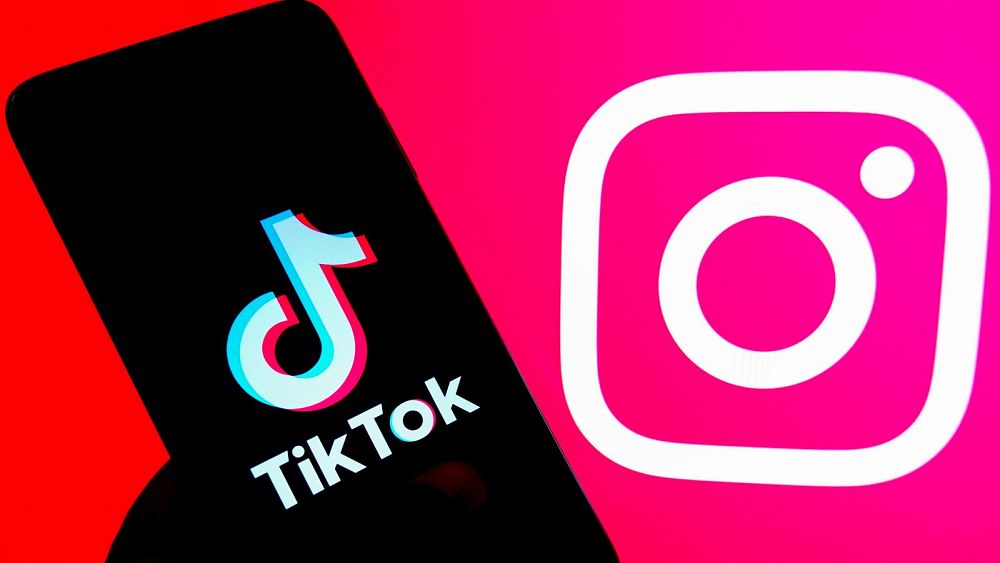
But it's important to see the issue from Instagram's perspective and play the devil's advocate for once - would the platform have been able to survive if it didn't implement this trendy new engagement formula?
Betray is a strong word - sure, you make a portion of the user base unhappy by changing how your platform works; but at the same time you're staying on top of the competition, preventing users from leaving to another platform that has this particular feature and at the same time attract new users that want that feature. Instagram continued to grow by half a billion users since 2020 after implementing reels.
/cdn.vox-cdn.com/uploads/chorus_asset/file/21698434/Reels_IOSX_3.png)
Similarly, in 2022 Facebook's main feed has been revamped to look and feel more like TikTok, with the aim to appeal more to younger audiences. As mentioned, this isn't an isolated incident, and I believe that we'll see this happening more often in the future, where platforms undergo complete overhauls to adapt and implement the newest, most engaging formulas.
Rather than having an Eco-system of apps that have a distinct, definite and clear-cut purpose, it'll feel much more like a soup of different things. And it already feels like that to me.
In other news, we still have Meta trying to be somehow innovative with it's gimmicky Metaverse. But that hasn't been working out so well. At this point in time, it's not certain if the concept will actually ever come to fruition, since there doesn't seem to be much interest in the concept:

This raises question: why is engagement so important to these platforms? Why do they go to such lengths to adapt the formulas that retain users the best, even going as far as to completely change their identity?
The Masses as the Product
To understand why connecting users is no longer a priority to so many of the major platforms, one has to understand how these massive open broadcast channels are monetized and generate revenue.
Rather than the user simply being a user, the user is now also the product. Engagement is what fuels these platforms, it's the lifeblood that keeps them alive. While these platforms give you the chance of reaching millions of people at any given instant, at the same time, your existence on the platform is being sold to advertisers and offered to other users.
The main way that social media platforms generate revenue is directly via advertisers paying to have their content displayed to users of the platform:
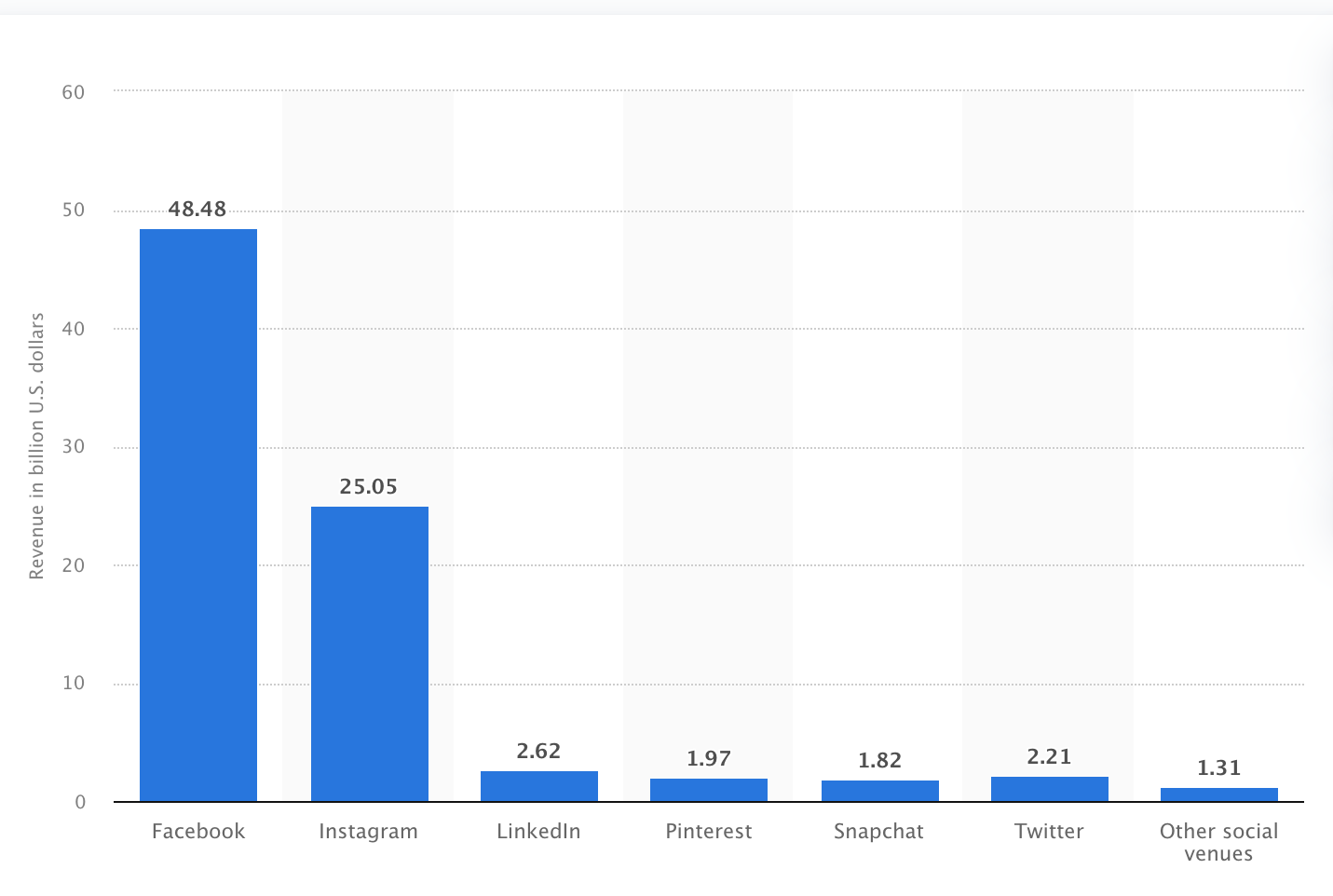
The more time you spend on the platform, the more ads you will see, the more likely it'll be that you click on an ad and maybe even make a purchase thereafter. That's why it's so important to keep you scrolling, and keep you consuming content for as long as possible.
This is not the only way that you generate revenue for these companies though. Not just by looking at the ads, but also simply by existing on these platforms: the way that you interact with the platform, the accounts that you follow, the content that you like and bookmark, the posts that you engage with - all of that information is tracked and provides insights into what kind of person you are, as well as the things that you might be interested in, which in turn can provide important indications on what products or services you are most likely to purchase.
All of this information can then be sold as targeted advertisement to third party companies that are looking to advertise their products:
:max_bytes(150000):strip_icc()/GettyImages-1256442767-c11cffce58b34647a539eae6da7b1300.jpg)
A different form of monetization that has become popular in recent years, are premium subscriptions to the platform, that unlock certain perks and additional benefits for the paying users.
For instance, one perk that Twitter blue subscribers obtain is an algorithmic boost to their tweets, which prioritizes tweets made by premium users in search and rankings - disregarding for a moment that this is a morally and ethically questionable monetization practice, it plays out to the same principle of monetizing the user-base, for the user-base.
In the future, premium Twitter users also get the chance to earn money from ad impressions that may appear underneath their tweets. That's yet another way to attract more people: the platform as a means to earn money. This one could actually be a good change - if it weren't for the fact that you had to pay to play. You need to be a premium subscribed to obtain your payout, otherwise it's held hostage.
And a slight variation on the previous monetization strategy: giving users the ability to sell subscriptions to other users, in exchange for access to premium content. This isn't an entirely new concept. Initially Twitter stated that they would not take a cut from these subscription fees, but that will probably change later on. This is also happening on Instagram, and a couple of other platforms.
Teach a man to fish, and he will feed you a lifetime... Wait, that's not how the saying goes, or does it?
Where does that leave the user though? When the platform revolves more around generating revenue, in whatever way it can, rather than being true to it's original purpose, then it takes away a lot from the user experience. All of these features are not in service of the user, maybe they are advertised as such, but they merely exist because they have the potential to generate revenue for the platform. And ultimately this has a detrimental effect on the platform as a whole.
That's why I believe that these things need to be well thought-through before they're added in as features.
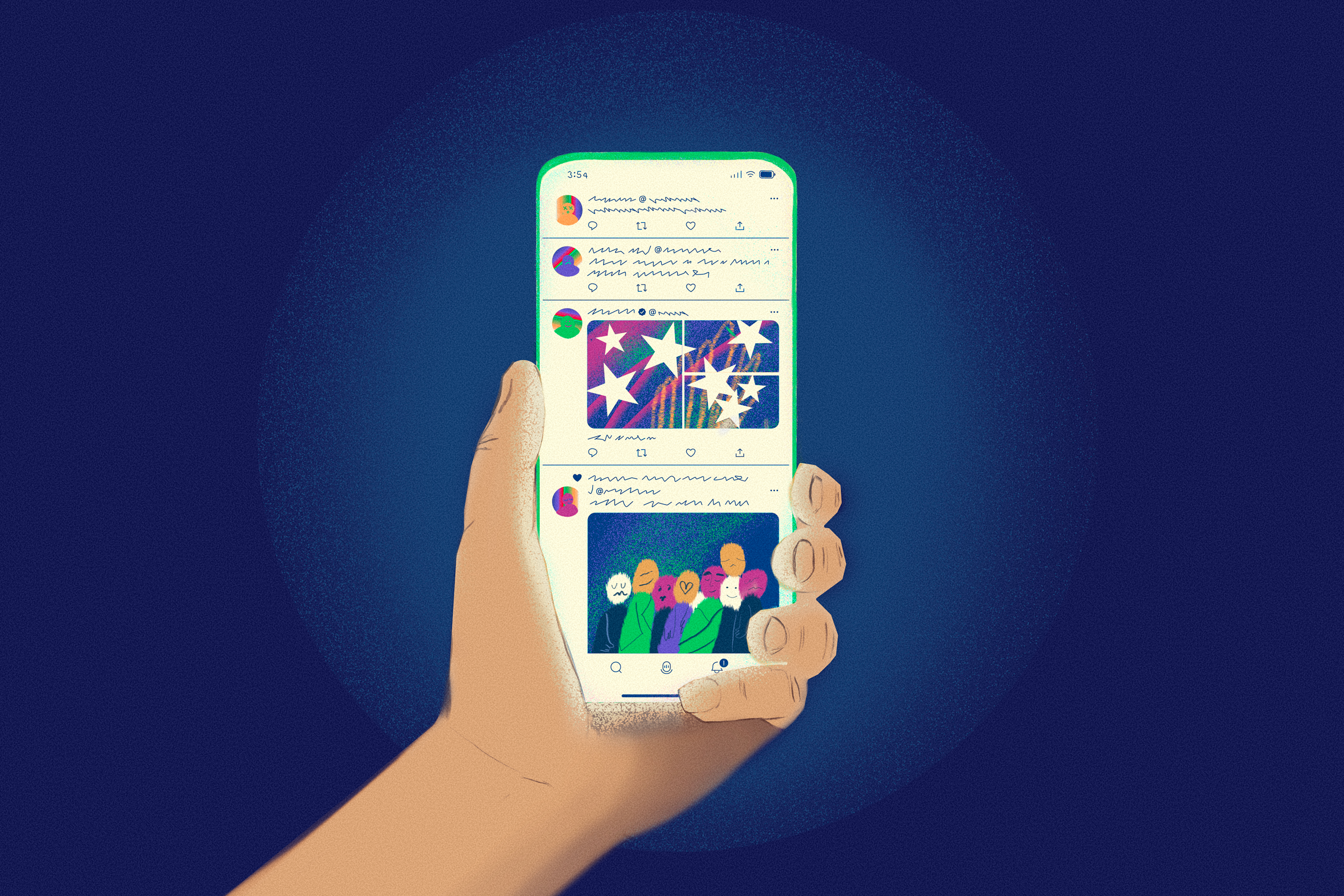
In some ways I find this similar to developments that are unfolding in the video-game space, where predatory monetization tactics have in many ways completely altered the identity of certain franchises that were previously beloved for their game play and their story in equal parts.
One major example is the Diablo franchise, the first and second installments being some of the most popular games in the early 2000s... and well, it's not been going too well with the most recent one.
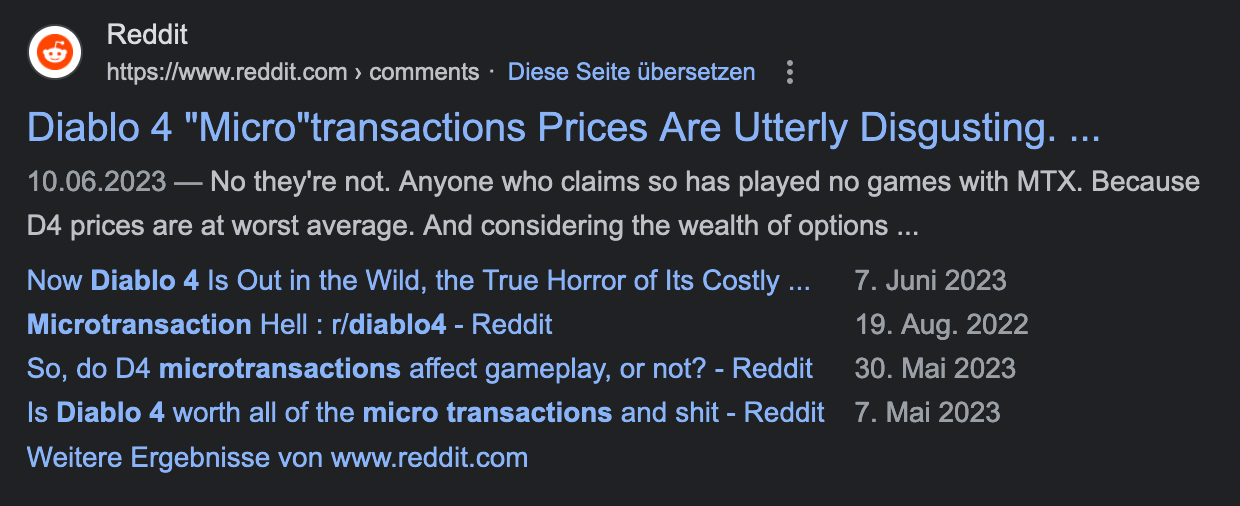
When a large part of the product becomes centered around the monetization aspect of things, this has a drastic effect on the rest of the product:
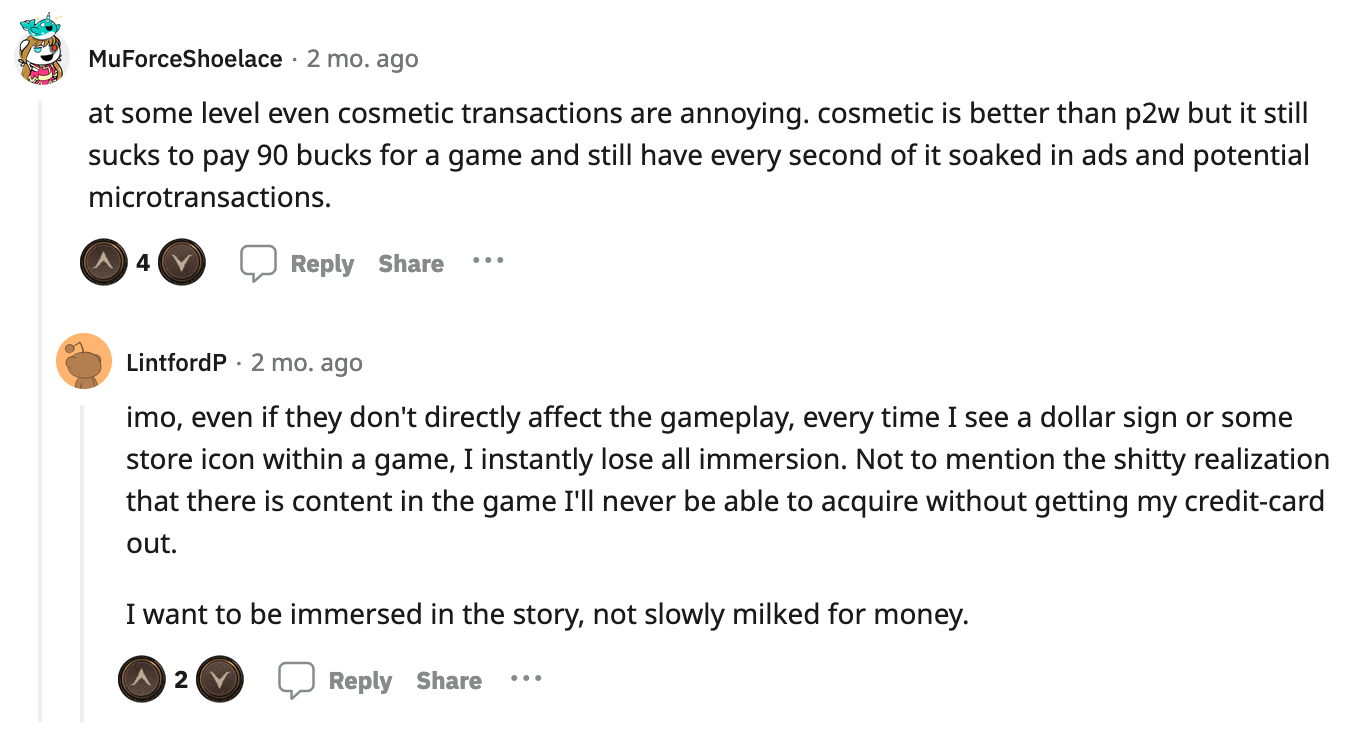
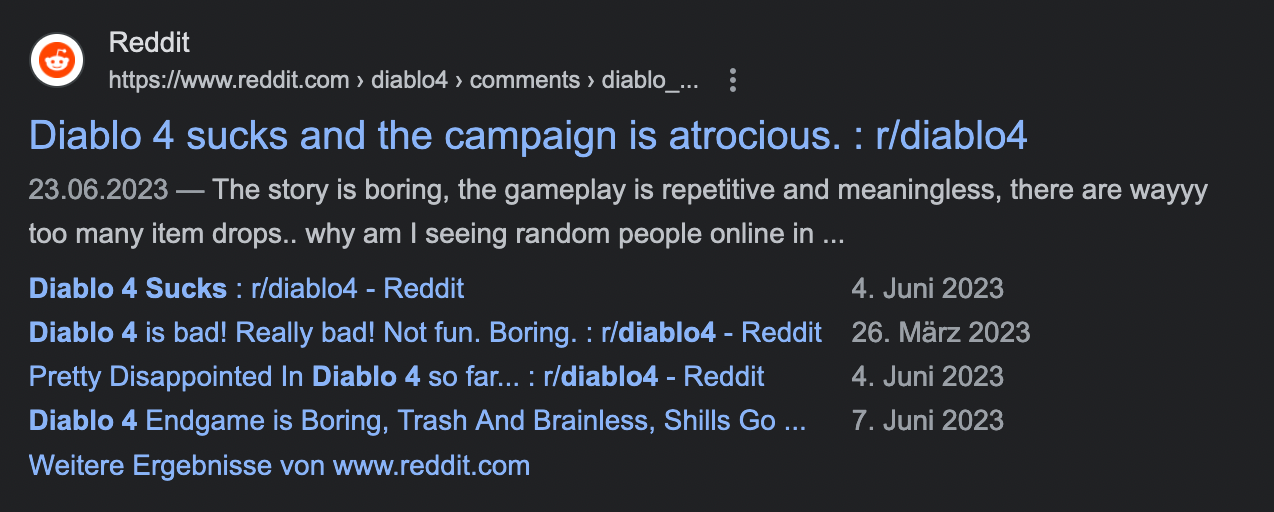
Where am I trying to go with this?
In video games, a product that primarily revolves around immersion, story-telling, game-play, and consequentially the user having fun; the adverse effects of monetization strategies can quickly become apparent as they are detrimental to the overall experience.
When it comes to social media platforms, these things aren't as clear, the lines become more blurry, as to what is acceptable and tolerable. However there still is a perceived effect: the identity of the platform changes. The nature of the content that is shared on the platform changes and as well as the way that users interact with the platform.

Content Creation: A Game of Psychological Warfare
The direct consequence of engagement formulas, as well as the monetization of engagement is a change in the type of content that is incentivized. Who would've thought, but I'm actually going to use Youtube as a positive example in this case. One of Youtube's algorithmic metrics to gauge the quality of a video is watch-time:
Watch time is the total amount of minutes viewers have spent watching your videos. It's a key metric because YouTube elevates videos and channels with higher watch times in their search results and recommendations section - Hubspot Blog
The outcome of this, is that interesting videos can exist on the platform. There's still a lot of trash in the mix, but at the very least thought provoking content has a fighting chance among the 500 hours of video content that is uploaded every minute to the platform, and can survive in the long run. As a side-note, I actually think that the Youtube recommendation algorithm is really good.
A metric that indirectly encourages interesting content makes it possible for creators in all sorts of different niches to exist. For instance, two of my favorite channels are 3blue1brown and Numberphile. I also occasionally enjoy a 40 minute long lore video on some obscure video game. It's true that Youtube ultimately still has many other problems, but at least there's one metric that has the potential to promote meaningful content and the organic growth thereof.
When the only metric that matters is engagement, creators are incentivized to lean into cheaper tactics, and play into content strategies that maximize that metric. In most cases this manifests itself in the form of the exploitation of one or more cognitive bias of the human brain. Some individuals more susceptible to it than others, it is all with the aim to inflate the numbers that signal the algorithms whether a piece of content is engaging or not.
The reality of today is that algorithmic metrics dictate the value of content. The metrics are more important that the essence of the content.

A piece of content doesn't survive by virtue of what it is, but rather, by means of playing into the metrics that will artificially amplify it and keep it alive. This is why emotional content does so well for example, especially when it's controversial or even toxic, it will incite people to engage somehow, be it to fight the subject matter or ridicule it. The algorithm doesn't know, nor does it care, if this interaction healthy or not - it only cares that some form of interaction is taking place.
Naturally that's just the tip of the iceberg. The root of the problem is that over the course of the past two decades, companies have crafted these hyper efficient and addictive engagement machines that directly play into the human psyche, without actually understanding the repercussions that these methods might have in the future.
/cdn.vox-cdn.com/uploads/chorus_asset/file/23951344/STK040_VRG_Illo_N_Barclay_4_facebook.jpg)
Concluding Thoughts
There's been the tiniest amount of progress in the form of congress hearings and law makers starting to become aware of the impact of social media. But at the same time it's sad how far behind we are in the regulation of these things. While lawmakers are grappling with whether or not an app 'accesses devices on the home WIFI' the real danger lies many layers of of abstraction deep.
Here's some ideas to make things better in the future:
- Algorithmic Regulations: in many ways it's the wild-west out there when it comes to the algorithms that power the mainstream social media platforms of today. There's laws and regulations for literally everything else in the world, but when it comes to these matters, that are arguably shaping the future generations of humanity, there's a big and gaping void. We need people in charge that have an understanding of the current issues, the implications and effects of predatory metrics, and that can put in place meaningful directives on how these algorithms are allowed to operate.
- Downscale and Transparency: maybe super apps are the future, but at this point why do we need an app that does everything, when there's a beautiful and varied eco-system where everyone can choose the service that they like? Social media platforms need to be more transparent on what they're trying to achieve and held accountable. Similarly social media platforms are becoming too large for their own good, for instance, more than half of the world's population is on Facebook. I believe that downscaling could solve a lot of the problems, I'm not certain if that will eventually happen however. There's another great article on this by Ian Bogost on this topic:

- Awareness and Transparency: Stop being the product. Switch to a service that doesn't try to manipulate you, or at the very least be aware of how you are being exploited. And stop falling for the tricks. If you have friends and family members, younger siblings and kids that maybe aren't as tech savvy as you, make an effort to have a conversation with them. Things that might be evident to you, might've never crossed their mind.
Social Media has become an indispensible part of my existence on the internet, most of the people that find themselves on this very blog, do so by following a link that I might've shared over on Twitter.
Maybe even you, find yourself here through a link that I've posted over on the birdsite.
The words that I write only become alive in the mind of the reader. Otherwise it’s just a bunch of dead bytes floating around on some distant server. The letters that I'm typing into the editor right now only hold meaning when they're read - this blog only lives through it's readership. My mission is to inspire, document my journey, share my learnings and findings, and have my ideas proliferate in some manner on the internet. And social media platforms have been instrumental in achieving these goals - for that I am immensely grateful.
What do you think about these issues? Is social media changing for the worse or the better? What will social media look like in 5 years? In 10 years?
As always, I hope you've enjoyed this post, I definitely had a lot of fun writing it!
If you did, consider sharing it on your socials, or signing up to the newsletter to get updates whenever new content is posted on the blog. It helps a lot! Otherwise, cheers ~ Gorilla Sun 🌸
